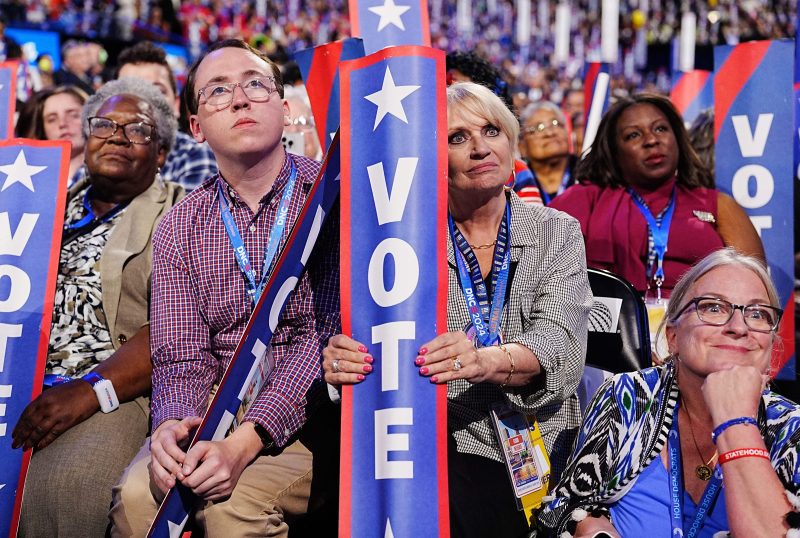In today’s political landscape, the issue of voting rights has emerged as a critical concern, drawing significant attention from policymakers and citizens alike. The Democrats’ steadfast commitment to advancing voting rights legislation underscores the pivotal role it plays in the democratic process, setting the stage for potentially transformative changes in electoral procedures. As Vice President Kamala Harris spearheads the administration’s efforts, the momentum behind these bills is poised to reach new heights, signaling a dynamic shift in the legislative agenda.
The proposed voting rights bills represent a concerted effort to safeguard and expand access to the ballot box, a fundamental tenet of American democracy. In light of the challenges posed by voter suppression tactics and discriminatory practices, Democrats are determined to fortify the integrity of the electoral system. By prioritizing these bills, they aim to dismantle barriers that hinder individuals, particularly marginalized communities, from exercising their constitutional right to vote.
The emphasis on voting rights legislation reflects a broader commitment to fostering inclusivity and promoting equitable participation in the electoral process. Recognizing the historical legacy of disenfranchisement and systemic inequality, Democrats are intent on rectifying past injustices and ensuring that all voices are heard. Through targeted measures such as automatic voter registration, early voting provisions, and enhanced ballot access, these bills aim to empower citizens and strengthen the democratic fabric of society.
Moreover, the impending passage of voting rights bills carries symbolic significance, serving as a testament to the enduring values of democracy and civic engagement. In a time marked by political polarization and discord, the bipartisan support for these initiatives offers a glimmer of hope for fostering unity and collaboration. By transcending ideological divides and championing the common good, policymakers are laying the groundwork for a more inclusive and responsive political system.
The convergence of factors, including heightened public awareness, grassroots activism, and bipartisan cooperation, has created a propitious environment for advancing voting rights reforms. As Vice President Harris assumes a pivotal role in championing these bills, her leadership underscores the administration’s commitment to upholding democratic principles and strengthening electoral integrity. With the prospect of transformative legislative action on the horizon, the momentum behind voting rights legislation is poised to reshape the political landscape and embolden citizens to actively participate in shaping their collective future.
In conclusion, the ascent of voting rights bills to the top of the legislative agenda heralds a new chapter in American democracy, one defined by inclusivity, accessibility, and accountability. As policymakers and citizens alike rally behind these initiatives, the promise of a more equitable and representative electoral system beckons on the horizon. Through sustained advocacy, collaboration, and a steadfast commitment to democratic values, the trajectory of voting rights reform stands poised to chart a path towards a more just and participatory society.



























